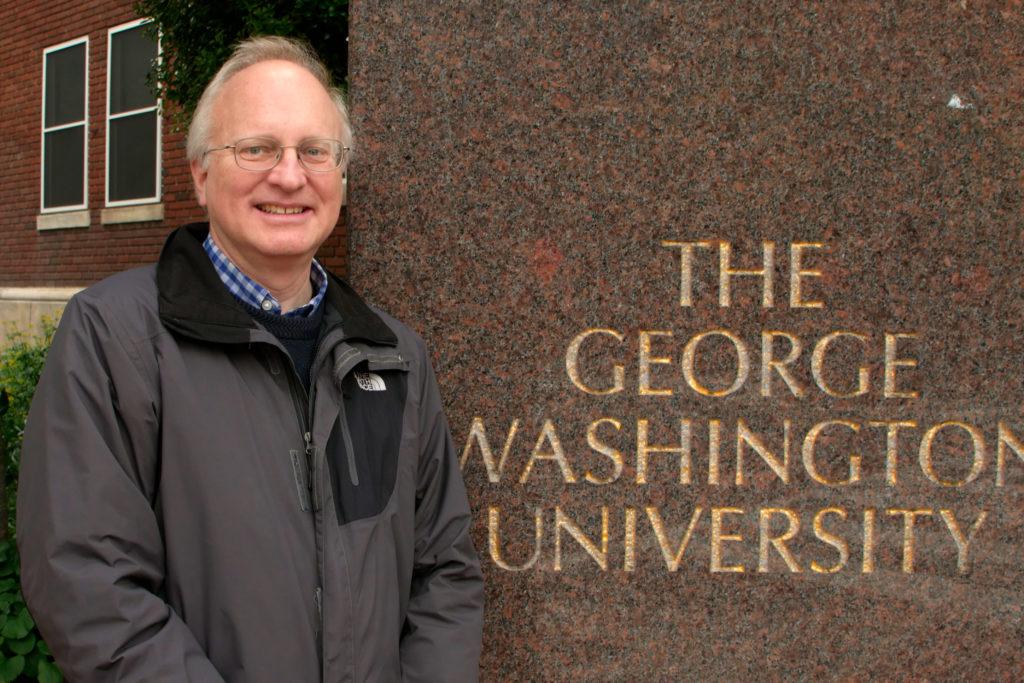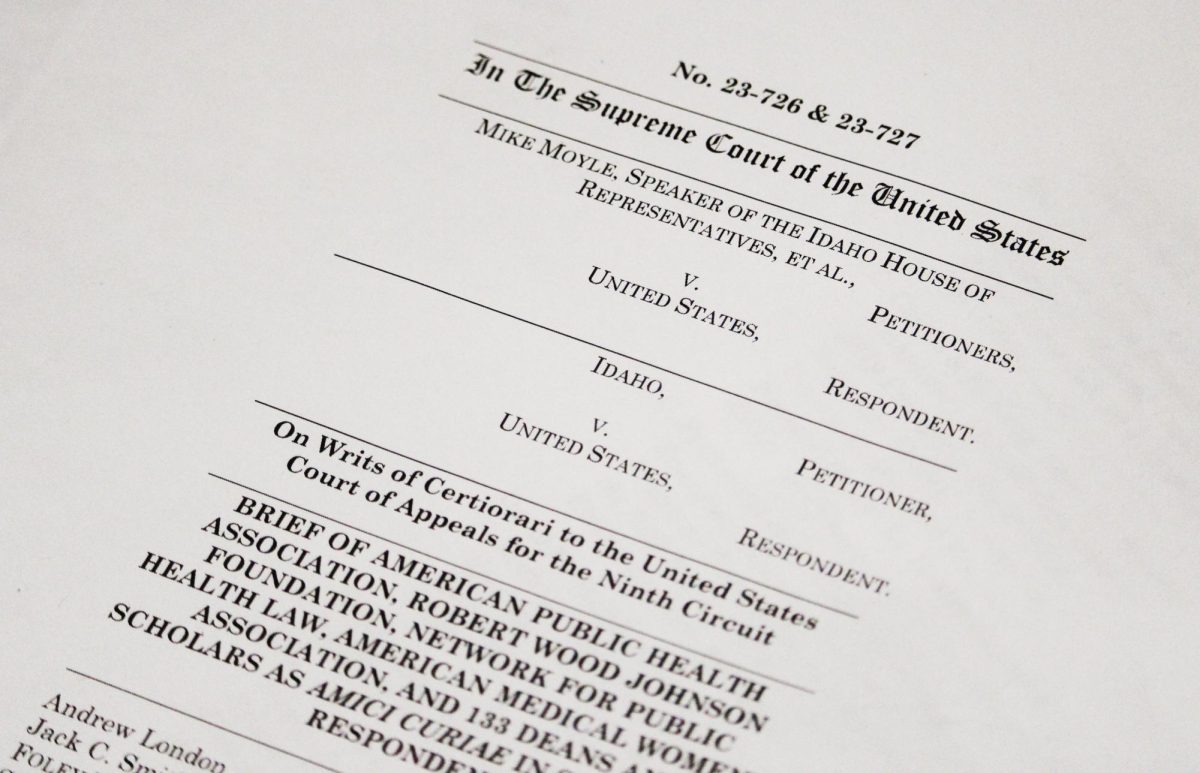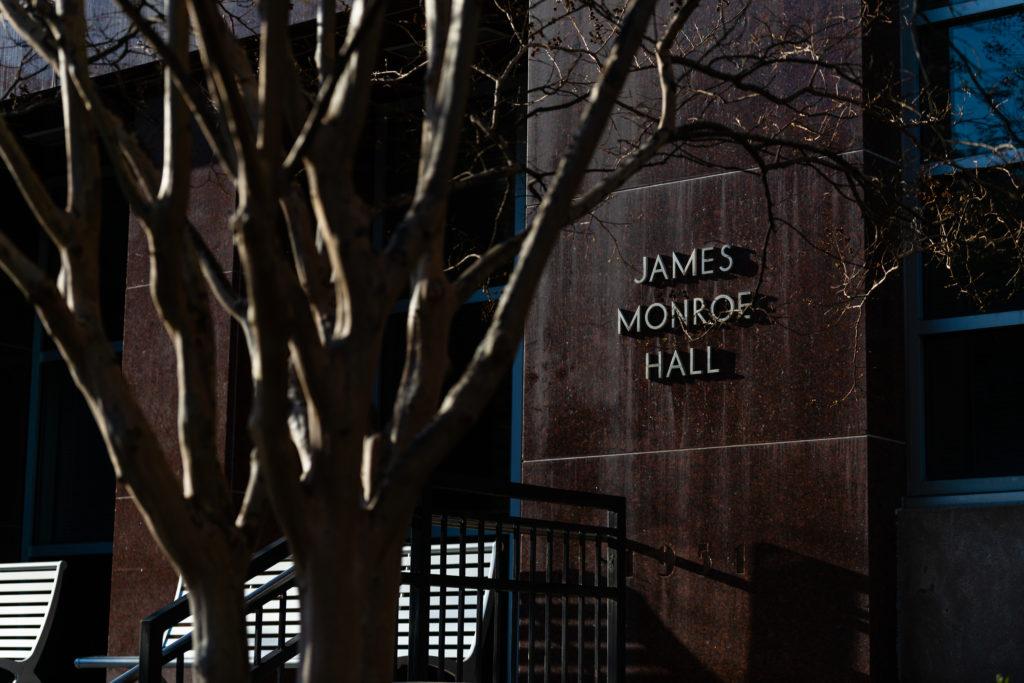A research professor in the Elliott School of International Affairs is developing new technology that can bring cleaner and more affordable power to low-income communities in the District by next calendar year.
Robert Orttung, the director of research for Sustainable GW, is working on a pilot project with members of four schools at GW to develop microgrids – smaller self-functioning versions of a typical electrical system – that can provide electricity to households even when the main electrical grid goes down during a storm. He said he hopes to implement the technology in the District next year and eliminate the high cost of energy for low-income and minority groups in Wards 7 and 8.
“It’s possible to have clean energy to the extent that we can facilitate the uptake of more clean energy throughout Washington D.C., and then if the models work, then maybe in other cities as well,” Orttung said. “Lots of people are working on this topic, but we can contribute to that researching. Then I think that’ll help make the world a better place at the end of the day.”
Orttung said his team received a $150,000 planning grant from the National Science Foundation for this research last year. He said the team is seeking to take an interdisciplinary approach to the project with help from the School of Engineering and Applied Science, Columbian College of Arts and Sciences, the School of Business and GW Law.
Orttung said SEAS engineers are working to develop and implement the new microgrids in the District, and CCAS researchers are focusing on the sustainability aspect of the project, which involves promoting renewable energy. He said law school participants are looking at how to make the District’s policies more inclusive of new technology like the microgrid system, while the business school professors are producing finance models that examine potential returns on investment and investors.
“That all fits into our broader agenda of sustainability, which is just promoting renewable energy and that kind of thing,” Orttung said. “So what we’re trying to do, the basic idea, is to integrate all these different things.”
Orttung said he hopes to implement the pilot program as early as next calendar year and spread it to other communities in the District and possibly other cities if it is successful in providing cleaner and cheaper energy.
Orttung said the research team’s largest accomplishment so far has been defining “energy justice” by three components – who is able to participate in defining the energy system, the outcomes of the system and the ability to change the system. He said increasing energy justice should take these factors into account to produce a more balanced system in the future.
Orttung said the research team created an advisory committee last year composed of seven community members that meet monthly. He said the advisory committee consists of representatives of non-governmental organizations working on energy justice, investors and people involved in technology and policy.
He said the members work together to provide recommendations on the structure of the project and how GW should use its resources to best serve the community.
“We’re working with them in trying to understand the practical issues and what the community priorities are and then use that to try and shape our research so we can provide the intellectual resources to address those community priorities,” Orttung said.
Payman Dehghanian, an assistant professor of electrical and computer engineering and the director of the GW SmartGrid Laboratory, said he is working with Orttung to develop the microgrids for the pilot project.
Dehghanian said his team will integrate microgrids into local communities, so the electrical grid will become more resilient to natural disasters like lightning storms. He said the microgrid technology will allow residents to use solar electricity during the day and have battery solutions in the night.
He said this project opens “new gateways” to rethinking equitable electricity pricing through its focus on how to implement pricing that is compatible with different economic classes and incomes.
“Statistics reveal that electricity bills are actually 20 percent of the household’s income in Wards 7 and 8,” Dehghanian said. “During some extreme events like heat waves, which are happening there more frequently than before in the Washington D.C. area, residents of these two wards, Wards 7 and 8, will sometimes choose between air conditioning and heating, making energy a concern or access to affordable energy a concern for them.”
Experts in engineering said community engagement is necessary when implementing this new technology because community members are the ones that will face the effects of any changes in energy distribution.
Jim Freihaut, a professor of architectural engineering at Penn State University, said microgrid implementation can help fuel economic development, a factor in energy equity. He said Orttung is taking the right approach with the project because ensuring equity requires interdisciplinary work.
“The reason why I say he is doing this right is because he’s bringing the law school in,” Freihaut said. “There’s going to have to be changes in the regulations and the policies, and there’s going to have to be incentives for people to do this.”
Eilyan Bitar, an associate professor at the School of Electrical and Computer Engineering at Cornell University, said improving energy equity requires education about energy systems. He said the research team’s advisory committee can be a “great vehicle” for hearing the voices of the community and including them in the process of addressing energy injustice issues.
“Some of the most important elements to ensuring the success of a pilot program or demonstration project is making sure that local community members understand what you’re doing, why you’re doing it and how it’s going to help them,” Bitar said. “Once they understand those things, they’re more likely to be supportive.”







